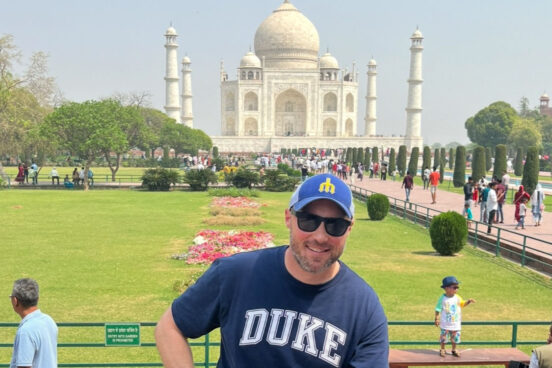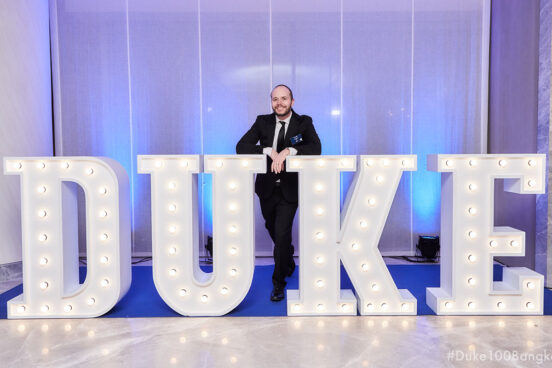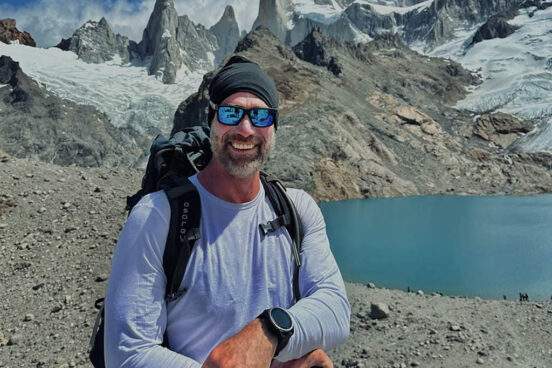Duke Global Executive MBA Student Blog

Mind Mapping My Way to an MBA and Beyond
I put getting an MBA on my mind map—and here I am, about to graduate with the Global Executive MBA Class of 2024.

A few years ago, I began the practice of mind mapping. I am a very visual person, so I have to see something to understand or fully grasp it. At work, we started using Objectives and Key Results (OKR) to manage progress. I was struggling to manage my progress in life efficiently. That’s when I started using OKR in the form of mind mapping for myself.
At the start of each year, I create my mind map by drawing a circle and dividing it into different sections, like relationships, health, finance, and more. Then, I look at where I am today, where I want to be in a year, and set key results. Before mind mapping, I would plan things out in my head, then get frustrated when things didn’t turn out exactly as I expected. But now I’ve created structure around organizing my goals and reflecting on them throughout the year.
From My Mind Map to MBA
During the pandemic, I was frustrated that my professional circle was getting smaller and smaller. I thought about what to do about this, and I decided to get an MBA. At the time, I thought an MBA would teach me about business, but I would also meet and learn from people from different backgrounds or working in different industries. I put getting an MBA on my mind map—and here I am, about to graduate with the Global Executive MBA Class of 2024.

For me, mind mapping is about being ambitious but also realistic. I try to reflect on my mind map once a quarter, like when I’m on vacation or relaxing. I take a look at the key results I’ve achieved and contemplate the ones I haven’t started. It’s an opportunity to take stock of where I am—because another thing to remember about OKRs is that the goals should be ambitious. Instead of 100% growth, you want to see 400% growth while also understanding that 50% isn’t a sign of failure, as much as it is that the goals were unrealistic at the moment of planning.
Setting Ambitious, but Realistic Goals
For example, I restarted my MBA after taking a pause. In that year, I also took on a Fuqua Client Consulting Practicum (FCCP) project and wanted to learn piano and German at the same time. For two months, I did all of them. Eventually, I realized I had to make changes—piano and German needed to wait. Reflecting on my mind map throughout the year helped me be happy with my progress instead of frustrated by not achieving my goals, allowing space for accountability and adjustments.

Everyone pursuing an MBA wants to grow and progress professionally, but I have found that focusing on that alone can very easily consume all of my time. Mind mapping helped me find my way to Fuqua, where I’ve created connections with my cohort and have become a stronger business leader. It also helped me make sure I’m staying connected with my friends and family, enjoying quality time with my fiancé, and visiting my parents.



